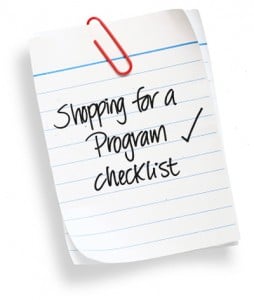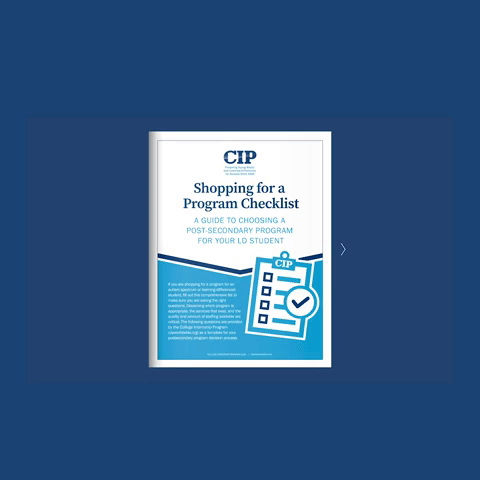Shopping for a Transition Program for Young Adults with Autism and Learning Differences?
If you’re looking to identify a great post-secondary transition program for a young adult on the autism spectrum or with learning differences, use the following comprehensive guide to help make sure you are asking the right questions.

Sample Guide Questions
-
- What is the general location of the program (i.e. city, rural)? Does this match my student’s interests?
- What’s the average length of a student's stay?
- Is there assistance for improving a student’s social competencies?
- How is the student assessed in the different areas of the program?
Download the Checklist
Fill out the form below to receive a copy of the Shopping for a Program Checklist!

Types of Transition Programs
Transition programs for individuals with autism spectrum disorder (ASD) aim to provide support and resources to facilitate successful transitions to adulthood, including post-secondary education, employment, and independent living. Here are some common types of autism transition program options:
College Transition Programs: These programs help individuals with ASD transition from high school to college by providing academic support, social skills training, and assistance with navigating college life. They often offer specialized services such as tutoring, study skills workshops, and accommodations for students with disabilities.
Vocational Training Programs: Vocational training programs focus on developing job skills and preparing individuals with ASD for employment opportunities. They may offer job coaching, internships, and workshops on resume writing, interview skills, and workplace etiquette.
Independent Living Programs: Independent living programs support individuals with ASD in developing the skills necessary to live independently, such as cooking, cleaning, managing finances, and using public transportation. These programs may offer supervised housing options and teach self-care and daily living skills.
Social Skills Programs: Social skills programs help individuals with ASD develop social skills and navigate social interactions. These programs often use evidence-based interventions such as social stories, role-playing, and group activities to teach communication, friendship-building, and problem-solving skills.
Transition Planning Services: Transition planning services assist individuals with ASD and their families in developing transition plans that outline goals, services, and supports needed for a successful transition to adulthood. These plans may address education, employment, independent living, healthcare, and community involvement.
Community-Based Programs: Community-based programs provide opportunities for individuals with ASD to participate in recreational, leisure, and community activities. These programs may offer social clubs, sports teams, arts and crafts classes, and other group activities tailored to the interests and abilities of participants.
Supported Employment Programs: Supported employment programs help individuals with ASD find and maintain competitive employment in integrated work settings. These programs provide job coaching, workplace accommodations, and ongoing support to ensure success in the workplace.
Dual Enrollment Programs: Dual enrollment programs allow high school students with ASD to simultaneously earn high school and college credit, providing a smoother transition to post-secondary education. These programs may offer specialized supports for students with disabilities, such as academic accommodations and transition planning services.
Each of these program types may vary in terms of structure, intensity, duration, and eligibility criteria. It's essential for individuals with ASD and their families to carefully research and evaluate program options to find the best fit for their needs and goals. Additionally, collaborating with educators, therapists, and other professionals can help ensure a comprehensive and personalized transition plan.

